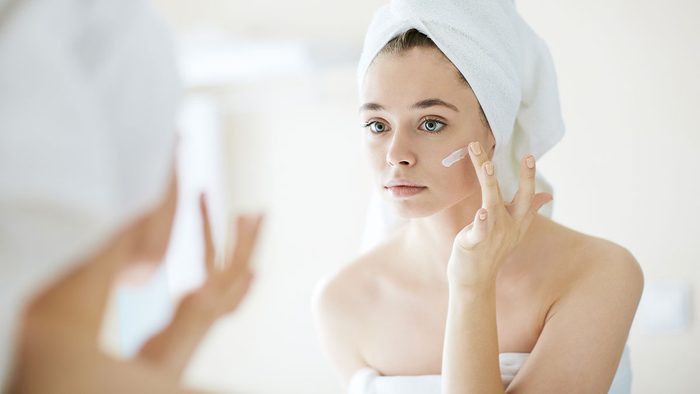
Certain skincare products
Many anti-aging and acne products work by thinning the outer layer of skin or regulating the production of melanin, a natural pigment that acts as a barrier for sun protection, says Alok Vij, MD, a dermatologist at the Cleveland Clinic. Look at the labels: If a product contains retinols or vitamin A, glycolic or salicylic acid, or hydroquinone, your skin may be more susceptible to sun damage. Be especially vigilant about seeking out shade, applying sunscreen, and wearing protective clothing and hats. Speaking of sun protection, don’t miss these sunscreen myths that make dermatologists cringe.
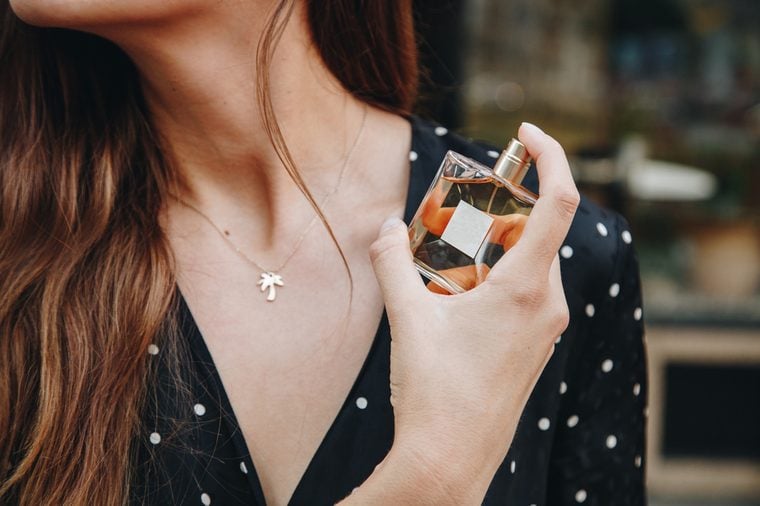
Your perfume
Believe it or not, certain fragrances can make your skin more sensitive to sunlight. Perfumes scented with lavender, cedar, rosemary, bergamot, and sandalwood often contain sensitizing chemicals, says Sonia Batra, MD, board-certified dermatologist and co-host of The Doctors. When these scents are exposed to sunlight, they can cause skin irritation and inflammatory hyperpigmentation, she says. Here are some ways to erase sun damage for good.
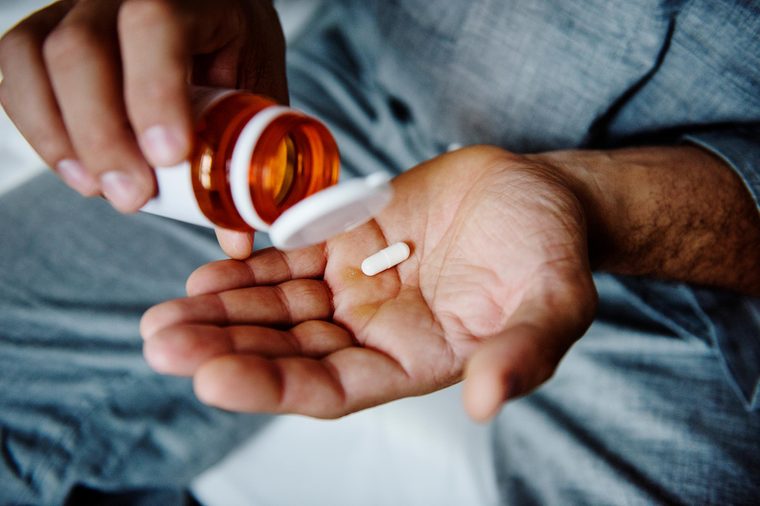
Your medicine cabinet
“Certain oral drugs for acne, such as isotretinoin, can greatly increase one’s risk of sunburn,” says Dr. Batra. “Also, some antidepressants, antihistamines, antibiotics, antifungals, and anti-inflammatories have been known to cause heightened photosensitivity.” Be sure to ask your doctor if your meds require you to take additional sun-exposure precautions. Here’s why you should discuss alternative medicine with your doctor.
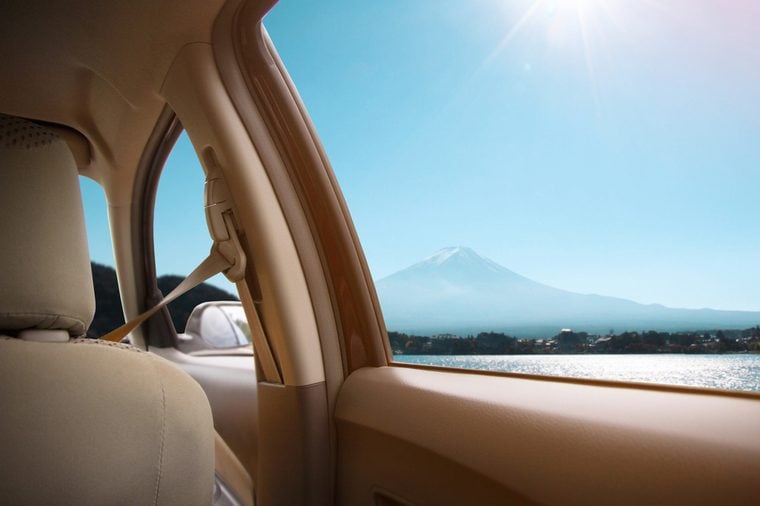
Your car or cubicle
You don’t need to lie in the sun for its rays to do damage. There are two types of UV rays — UVB and UVA — and while UVB are blocked by window glass, UVA can penetrate glass and deeper into your skin, explains Dr. Alexis. Daily sunscreen is especially critical if you spend a lot of time in your car or sit near a window at work. Check out these 8 bad excuses to not wear sunscreen.

Your diet
A niacin (vitamin B3) deficiency is associated with increased sensitivity to the sun, says Dr. Alexis. Meat, mushrooms, peanuts, and fortified grains are especially high in the nutrient. On the other hand, foods like limes, celery, and parsley contain a photosensitizing compound that can result in sunburn-like reactions, he adds. If you get sunburned easily, here are 10 tips to help you find relief.
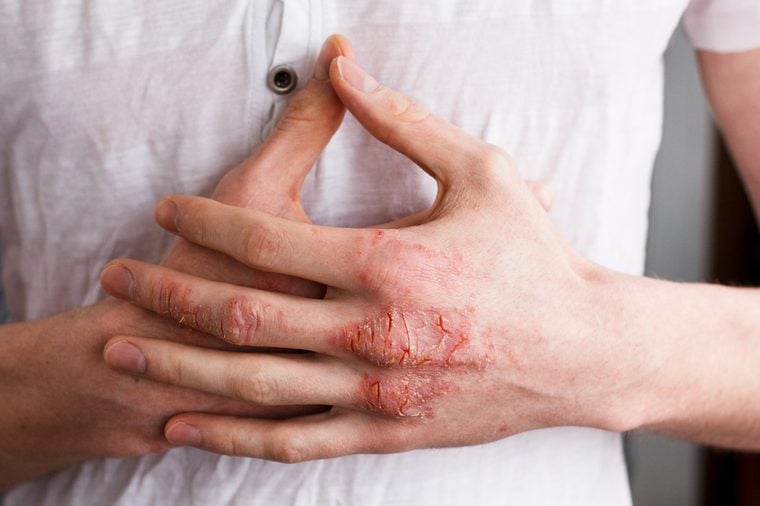
Your immune system is compromised
Conditions or treatments that suppress the immune system put you at increased risk of skin cancer and sun damage, says Andrew Alexis, MD, chair of dermatology at Mount Sinai West and Mount Sinai St. Luke’s in New York City. “Examples include immunosuppressive therapy to treat severe lupus, psoriasis, or rheumatologic conditions, chemotherapy, or poorly controlled HIV,” he says. Don’t miss these 6 foods that will boost your immune system.

Misreading the weather
You can still get sunburned on a cool or even cloudy day. “On cloudy days we tend to forgo sunscreen, but up to 80 percent of the sun’s UV rays can still pass through clouds,” says Dr. Batra. Regardless of temperature, avoid the sun during peak hours when its rays are the strongest (between 11 a.m. and 3 p.m.) and apply sunscreen daily, even if it’s overcast. Here’s what you should look for when purchasing sunscreen.
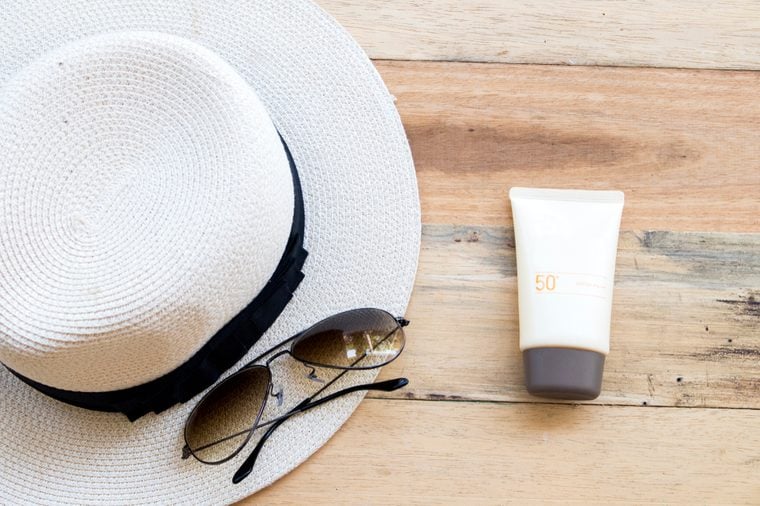
You don’t reapply sunscreen
You should always reapply sunscreen after swimming or sweating, and about every two hours the rest of the time. “Use a sunscreen with SPF of 30 or higher and apply about a shot glass-sized amount to cover the whole body,” says Dr. Vij. Find out if you’re applying sunscreen the right way.
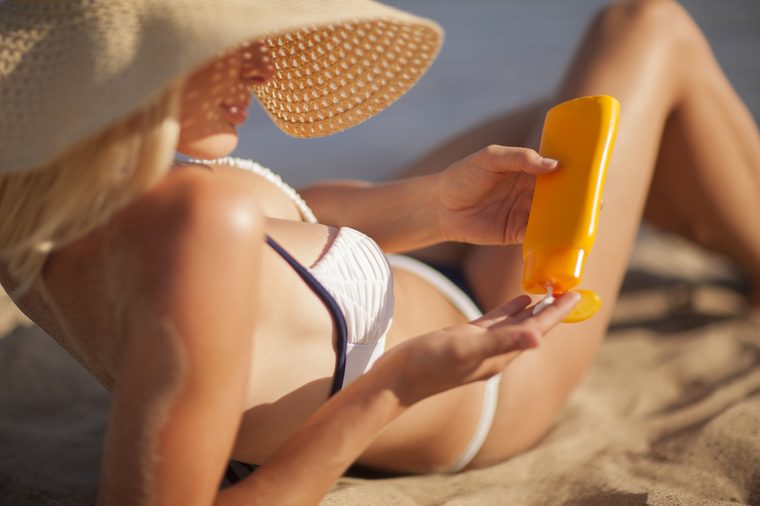
You slather on sunscreen too late
Timing is key when it comes to getting the most out of your sunscreen. Apply it at least 30 minutes before heading outside, so it has time to soak into your skin. You can also wear sun-protective clothing for extra shielding. Check out these 3 ways to save your skin after too much sun exposure.
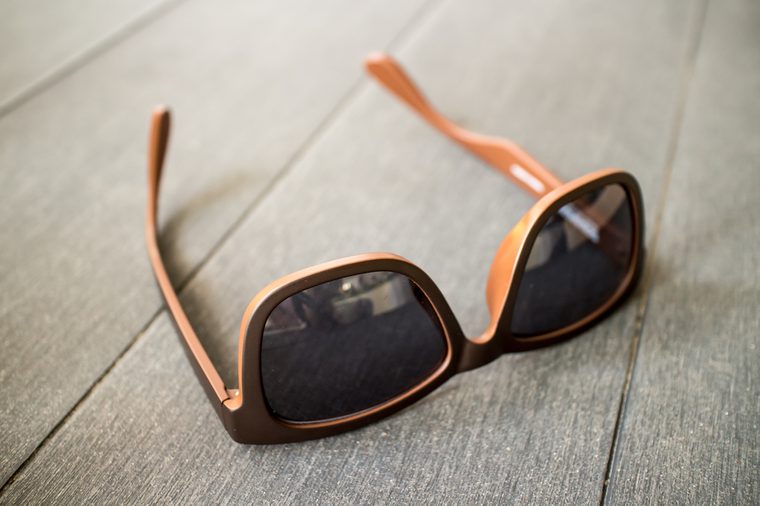
You don’t wear sunglasses
Your eyes can be damaged by the sun, too, especially when you’re at the pool or beach. “Light glaring off of the water doubles the amount of exposure to your eyes,” says Dr. Vij. Polarized, UV protective shades are your best choice, he adds. Here are the perfect sunglasses for your face shape.
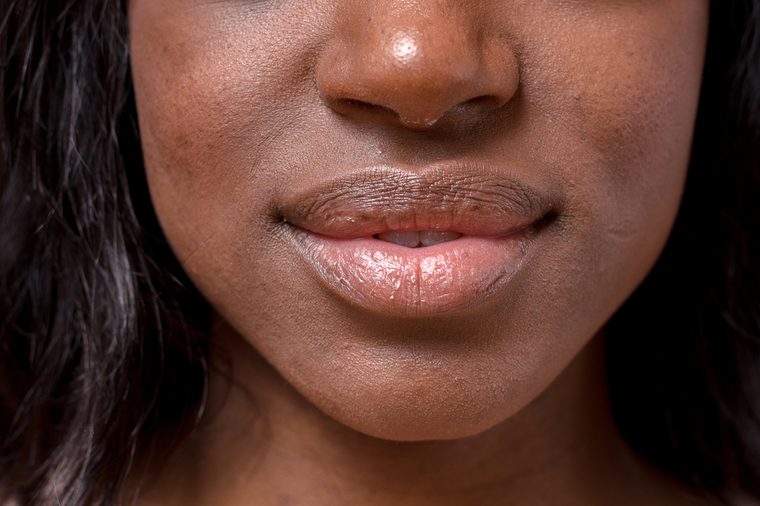
You skip your lips
“The thin skin on your lips can easily suffer sunburns and is particularly vulnerable to lip lines and wrinkles,” says Dr. Batra. Slather on a lip balm that contains SPF. Need your own? Try making your own lip tint with just 4 ingredients.
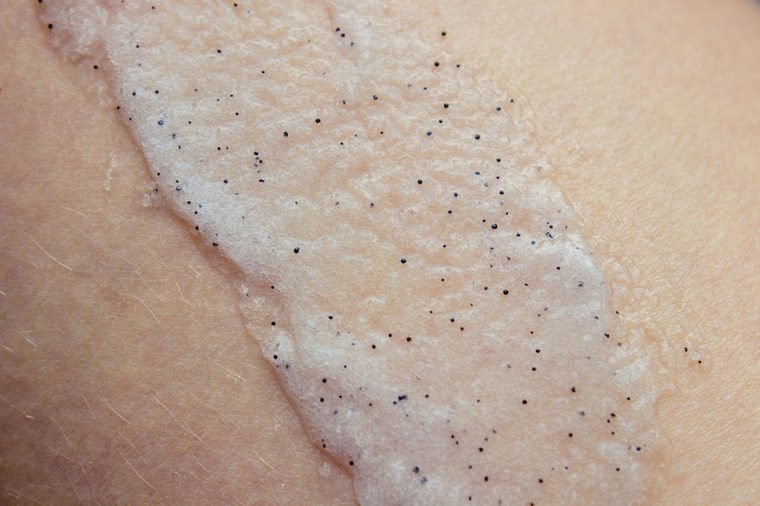
You exfoliate in the morning
“Exfoliating your skin rids the surface of dead skin cells that provide a protective barrier for the more vulnerable skin underneath,” says Dr. Batra. “If you’re going to exfoliate, do it at night and be sure to apply sunscreen in the morning.” Don’t miss the 3 skincare tools we’re totally obsessed with right now.
